Fall 2023 Brown Bag Speakers
2023 Brown Bag Speakers

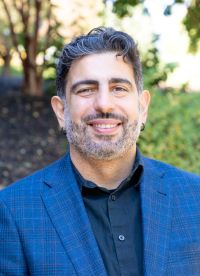
Investigating Transdisciplinary Approaches for Community-engagement
Nov. 16, 2023
Foad Hamidi, Ph.D.
Assistant Professor in Information Systems at the University of Maryland, Baltimore County (UMBC)
ABSTRACT
Participatory design (PD) offers powerful and inclusive principles and methods for enabling mutual learning among diverse stakeholders and interested parties. As our society’s aspirations for computational systems and processes that respond to multifaceted needs and desires continue to grow, so does the need to investigate approaches that transcend disciplinarity to achieve broad societal goals. One such goal is to develop the public's capacity to engage creatively and critically with emerging technologies of interest. In this talk, I draw on several recent projects where I use community-based PD to investigate and interrogate emerging technologies, such as DIY assistive technologies and living media interfaces (LMIs), together with stakeholders. I describe how we develop and use prototypes, design activities, and art installations in these projects to generate conversation about technological and social possibilities, limitations, and implications.
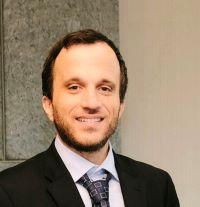
Algorithmic Scenario Generation As Quality Diversity Optimization
Nov. 9, 2023
Stefanos Nikolaidis, Ph.D.
Assistant Professor of Computer Science at the University of Southern California
ABSTRACT
The advent of state-of-the-art machine learning models and complex human-robot interaction systems has been accompanied by an increasing need for the efficient generation of diverse and challenging scenarios to test these systems.
In this talk, I will formalize the problem of algorithmic scenario generation and propose a general framework for searching, generating, and evaluating simulated scenarios. I will first discuss our fundamental advances in quality diversity optimization algorithms that search the continuous, multi-dimensional scenario space. I will then show how integrating quality diversity algorithms with generative models allows for the generation of realistic scenarios. Instead of performing expensive evaluations for every single generated scenario in a robotic simulator, I will discuss combining the scenario search with the self-supervised learning of surrogate models that predict human-robot interaction outcomes. Finally, I will introduce the notion of 'soft archives' for registering the generated scenarios, which significantly improves performance in hard-to-optimize domains.
While the talk will focus on scenario generation, the proposed framework is general and can be applied to a wide range of applications where diverse datasets are desirable. I will conclude the talk by discussing applications in searching for diverse faces, robot locomotion policies, and warehouse layouts.

Distinguished Alumnus Speaker
Augment, Diminish, Remap Reality: Freeing the Mind and its Resources
Oct. 30, 2023
Anne Collins McLaughlin, Ph.D.
Professor in the Department of Psychology at North Carolina State University
ABSTRACT
Our senses and minds construct our reality. Both are inherently limited and we naturally seek tools to improve our experiences. Anyone who covers their ears as a siren roars past, turns on closed captions, or dons sunglasses on a bright day has altered ‘reality.’ As technology advances, we can also control reality with cutting-edge extended reality (XR) technologies, which add to, subtract from, and remap sounds and visuals in our world. This presentation will cover the perceptual and mental processes underlying XR cognition aids, with methods of testing the effectiveness of these aids, current domains of inquiry, and results from several laboratory experiments on how altering visual and auditory reality can improve a person’s performance and experience.

Re-designing capitalism
Oct. 19, 2023 (THIS EVENT HAS BEEN CANCELLED)
Beth Kolko, Ph.D.
Professor and Associate Department Chair in the Department of Human Centered Design & Engineering at the University of Washington
ABSTRACT
This is a talk about how to redesign capitalism, focusing on how startups are built, products are made, and customers are reached.
Translational work in human centered design (and, some would argue, HCI) often focuses on product development and how to create technologies that effectively meet the needs of the people who adopt them. The discourses of “how to start a startup” courses, whether formal university offerings or Startup Weekend style community events, address products and users in ways that borrow quite a bit from these design discourses.
This talk will show how frameworks from these fields, such as systems thinking analyses, rapid prototyping, sustainable design methods, and community-focused iterative research, can drive multiple aspects of startups — including the development of business models, employee policies, pricing strategy, and more. The end goal is to help create companies that are less extractive and more beneficial to society at large. For this work I draw on my experience founding a medical device company as well as my experience in venture capital evaluating startups for two venture firms, to explore how frameworks common in HCD and HCI can be used more expansively — to guide not just how to build products, but how to build entire companies that address the needs of individuals and communities while minimizing downstream harms.

Measure and Manage Trust in Human-AI Conversations
Oct. 12, 2023
Mengyao Li, Ph.D.
Assistant Professor in the School of Psychology at Georgia Tech
ABSTRACT
Artificial Intelligence (AI), with its increasing capability and connectivity, extends beyond limited and well-defined contexts and is integrated into broader societal domains. AI algorithms now steer autonomous vehicle fleets, shape political beliefs through news filtering, and oversee resource allocation and labor. Establishing trust between humans and their AI counterparts becomes important to facilitate effective cooperation. Trust profoundly influences how individuals use, communicate with, and collaborate alongside AI systems. Thus, trust measurement and management within human-AI cooperation are indispensable for ensuring safety, efficiency, and overall success. This talk focuses on trust in human-AI interactions, addressing three primary questions: (1) How can we measure people’s trust in human-AI conversations? (2) How does trust change over time within human-AI conversations? (3) How can we effectively manage instances of overtrust or undertrust through conversational cues to enhance human-AI cooperation? This talk highlights critical advancements in measurement of trust dynamics in human-AI cooperation, promising to influence the future of AI integration into broader societal domains.
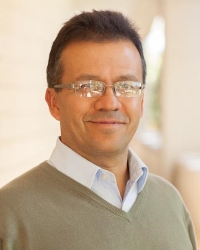
Integrating Social Justice and Engineering: Transforming Engineering Education from Within
Oct. 5, 2023
Juan Lucena, Ph.D.
Professor and Director of Humanitarian Engineering (HE) Undergraduate Programs at the Colorado School of Mines
ABSTRACT
The Humanitarian Engineering (HE) program at the Colorado School of Mines (Mines) has been transforming what it means to be an engineer by, among other things, integrating social justice into the engineering curriculum, including its humanities/social science courses, design projects, and, perhaps more importantly, its engineering science core. The HE program has challenged engineering faculty and students to re-think “what counts as engineering” by considering areas historically unattended by engineering (e.g., homelessness, immigrants, indigenous populations, low-wage workers, etc.) as worthy of engineering problem definition and solution. Dr. Lucena will share the Mines experience in rendering social justice visible throughout the engineering curriculum without compromising its integrity. He will focus on the different spaces within and around engineering curricula where integration can occur.
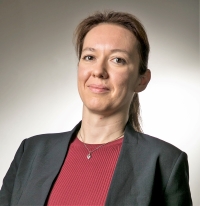
Edge and IoT-supported Augmented Reality: Promise, Challenges, and Solutions
Sept. 28, 2023
Maria Gorlatova, Ph.D.
Nortel Networks Assistant Professor of Electrical and Computer Engineering
ABSTRACT
Mobile augmented reality (AR), which integrates virtual objects with 3D real environments in real time, has been showing outstanding potential in many application areas including education, retail, and healthcare. AR is broadly expected to redefine how we interact with the world around us. Yet current AR falls short of many of the expectations. This talk presents our vision of multi-device, edge computing-supported and Internet-of-Things (IoT)-integrated architectures for next-generation intelligent context-adaptive AR. The talk describes shortcomings in modern AR’s semantic and spatial awareness capabilities and identifies key research gaps that need to be addressed to enable AR to become robust and resource-efficient; we discuss solutions to some of the key challenges, based on the advances in edge computing, machine learning, and resource-efficient simultaneous localization and mapping. The talk also highlights the opportunities associated with the close integration of AR platforms and their users, and describes how integrated multi-device architectures can improve user context awareness in AR. The talk showcases several applications of next-generation context-aware AR, including AR in surgery and mental health.
This talk is based on research that appeared in ACM SenSys, IEEE ISMAR, ACM IMWUT, IEEE INFOCOM, and IEEE/ACM IPSN.
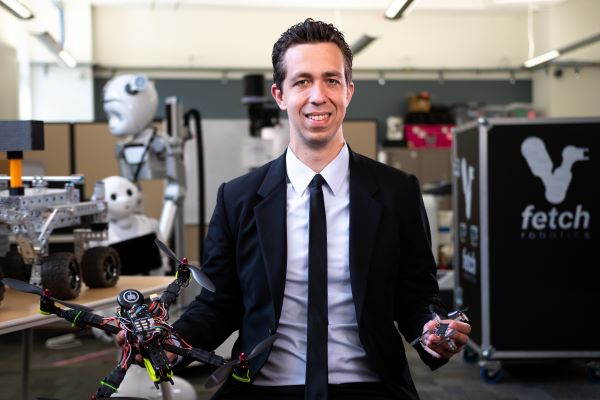
Democratizing Robot Learning and Teaming
Sept. 14, 2023
Matthew Gombolay, Ph.D.
Assistant Professor of Interactive Computing at the Georgia Institute of Technology
ABSTRACT
New advances in robotics and autonomy offer a promise of revitalizing final assembly manufacturing, assisting in personalized at-home healthcare, and even scaling the power of earth-bound scientists for robotic space exploration. Yet, in real-world applications, autonomy is often run in the O-F-F mode because researchers fail to understand the human in human-in-the-loop systems. In this talk, I will share exciting research we are conducting at the nexus of human factors engineering and cognitive robotics to inform the design of human-robot interaction. In my talk, I will focus on our recent work on 1) enabling machines to learn skills from and model heterogeneous, suboptimal human decision-makers, 2) “white-box” that knowledge through explainable Artificial Intelligence (XAI) techniques, and 3) scale to coordinated control of stochastic human-robot teams. The goal of this research is to inform the design of autonomous teammates so that users want to turn – and benefit from turning – to the O-N mode.
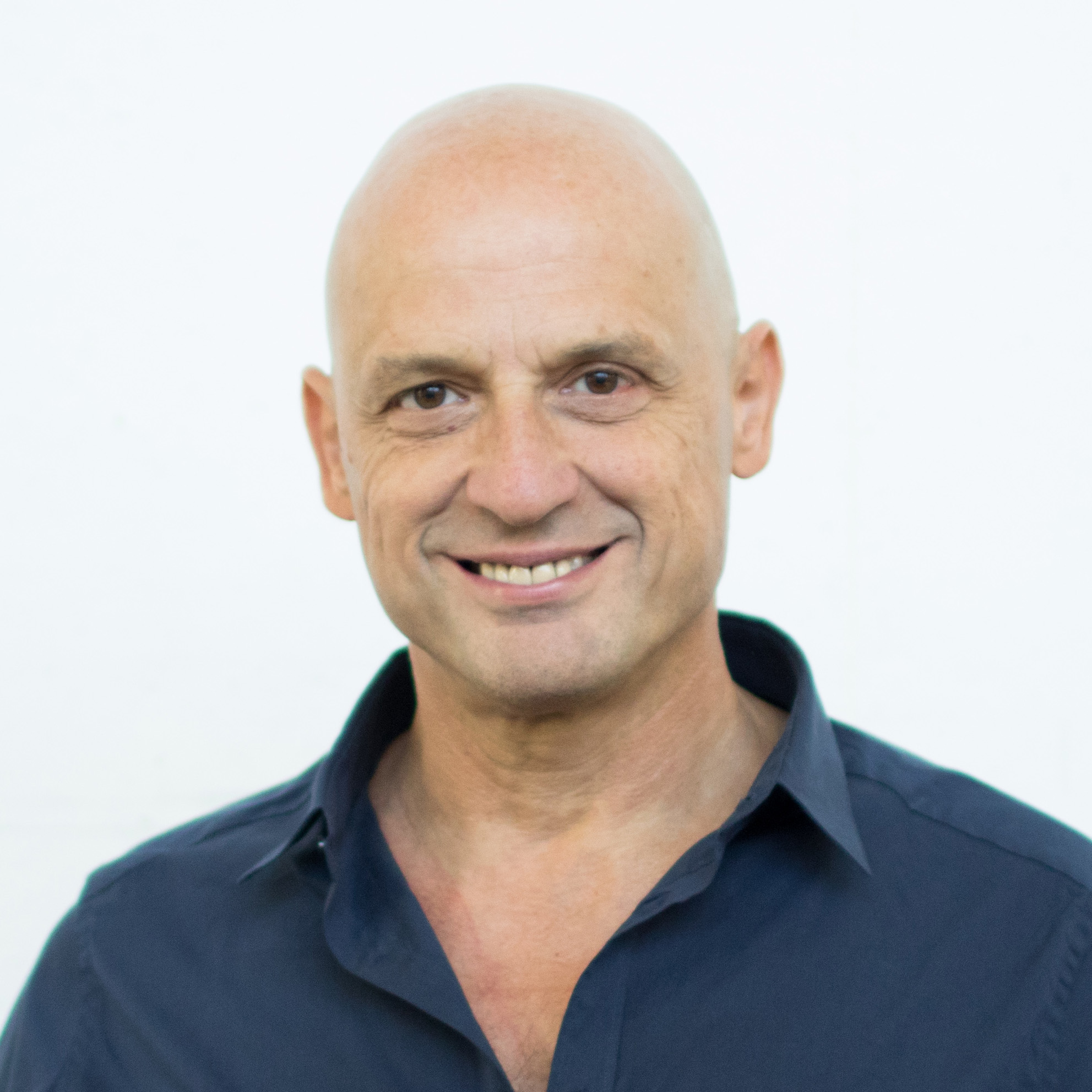
Shape Machine: From software to practice
Sept. 7, 2023
Athanassios Economou, Ph.D.
Professor at the School of Architecture in the College of Design and an Adjunct Professor at the School of Interactive Computing at the Georgia Institute of Technology
ABSTRACT
What would it mean if we could select any part (shape) of a CAD model and use it to find (⌘F) all its geometrical instances in the model (or other CAD models for that matter) – same size, larger, smaller, rotated, reflected or transformed in some way? What would it mean if we could edit this part and use it to replace (⌘R) all its geometrical instances in the model? Why is that the Find and Replace (⌘F/⌘R) operations that are so essential in Word or Excel have yet to be implemented in CAD? And what would happen if we could seamlessly use these shape-based Find and Replace (⌘F/⌘R) operations in a logical processing framework using states, loops, jumps and conditionals to literally write programming code by drawing shapes? How would this affect our current view of computation and what would it mean for design? The talk discusses the current state of the Shape Machine, a shape-rewrite computational system that features shape-based Find and Replace (⌘F/⌘R) operations for lines and arcs in 2D vector graphics and a logical processing framework including familiar control flow constructs (looping and branching), to allow write programming code by drawing shapes. Shape Machine is developed at the Shape Computation Lab at the Georgia Institute of Technology and currently is integrated within Rhinoceros, a NURBS 2D/3D CAD software. Several applications drawn from architectural design, industrial design, game design, circuit design, mathematics and other fields showcase the potential impact of this new technology in various domains. https://shape.gatech.edu/
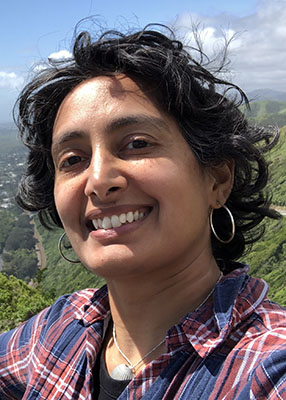
Reasoning with visual imagery: Research at the intersection of autism, AI, and visual thinking
August 31, 2023
Maithilee Kunda
Assistant Professor of Computer Science, Vanderbilt University
ABSTRACT
While decades of AI research on high-level reasoning have yielded many techniques for many tasks, we are still quite far from having artificial agents that can just “sit down" and perform tasks like intelligence tests without highly specialized algorithms or training regimes. We also know relatively little about how and why different people approach reasoning tasks in different (often equally successful) ways, including in neurodivergent conditions such as autism. In this talk, I will discuss: 1) my lab's work on AI approaches for reasoning with visual imagery to solve intelligence tests, and what these findings suggest about visual cognition in autism; 2) how imagery-based agents might learn their domain knowledge and problem-solving strategies via search and experience, instead of these components being manually designed, including recent leaderboard results on the very difficult Abstraction & Reasoning Corpus (ARC) ARCathon challenge; and 3) how this research can help us understand cognitive strategy differences in people, with applications related to neurodiversity and employment.

Considering IPaT: celebrating the past and inventing the future
August 24, 2023
Michael Best
Executive Director, Institute of People and Technology
Professor with the Sam Nunn School of International Affairs and the School of Interactive Computing
Please join us as Mike Best, the new executive director of IPaT, kicks off the first GVU Brown Bag lecture for the semester discussing IPaT, the past, and the future of people and technology. This first Brown Bag lecture is also part of an afternoon event featuring IPaT lab tours, a panel discussion featuring distinguished members of the Georgia Tech community in a continuing discussion about people and technology, ending with a beverage and food reception. The event will be held in the Technology Square Research Building (TSRB), 1st floor on Thursday, August 24 starting at 12:00 PM with the Brown Bag lunch. Brown Bag attendees are encouraged to join the panel discussion that will be held at 3:00 pm.



